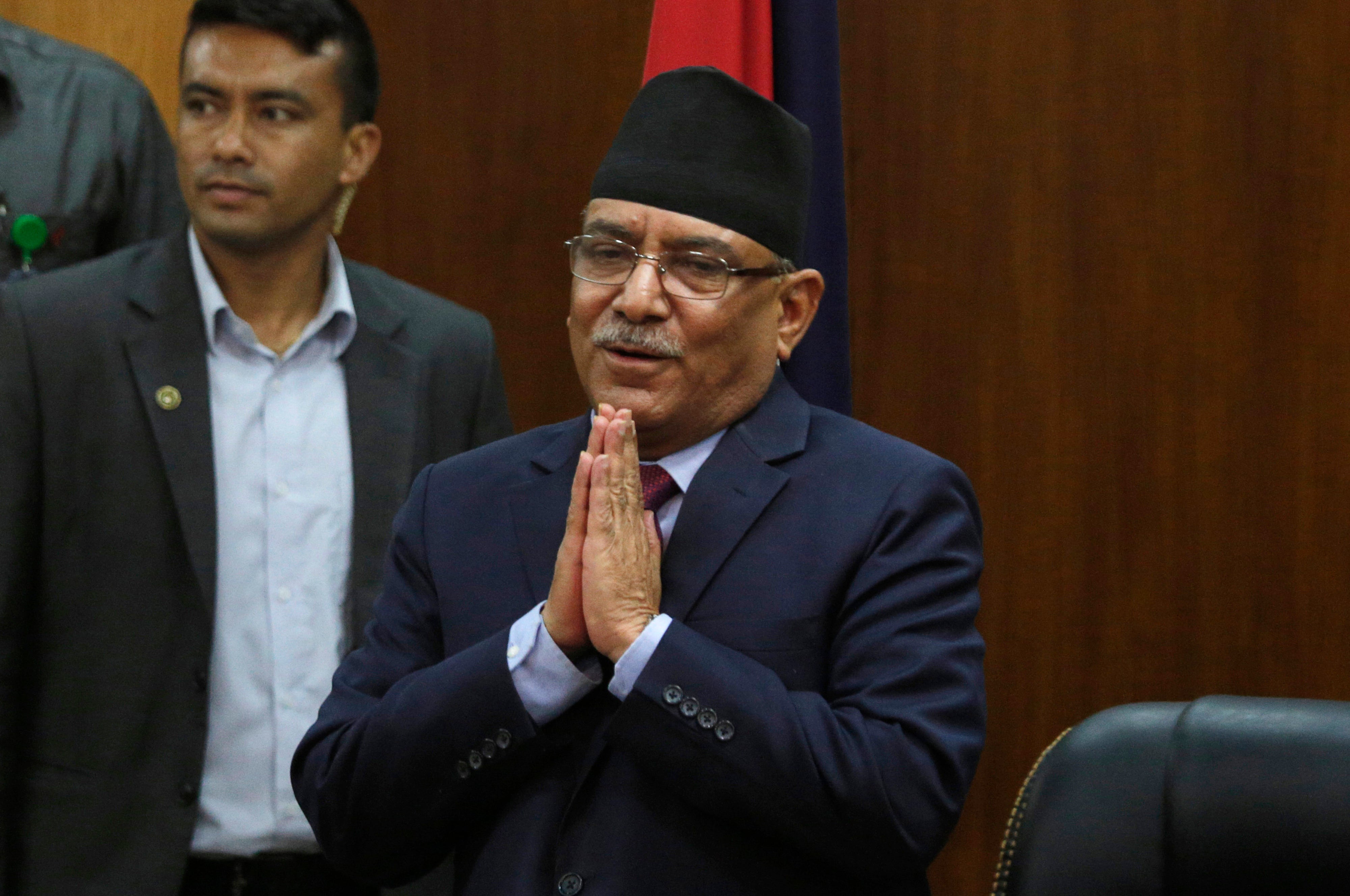Nepal's new PM takes oath, appoints deputies and ministers
Nepal’s newly appointed prime minister has taken his oath as the leader of a fragile coalition that includes his former opponent and other smaller political parties

Your support helps us to tell the story
From reproductive rights to climate change to Big Tech, The Independent is on the ground when the story is developing. Whether it's investigating the financials of Elon Musk's pro-Trump PAC or producing our latest documentary, 'The A Word', which shines a light on the American women fighting for reproductive rights, we know how important it is to parse out the facts from the messaging.
At such a critical moment in US history, we need reporters on the ground. Your donation allows us to keep sending journalists to speak to both sides of the story.
The Independent is trusted by Americans across the entire political spectrum. And unlike many other quality news outlets, we choose not to lock Americans out of our reporting and analysis with paywalls. We believe quality journalism should be available to everyone, paid for by those who can afford it.
Your support makes all the difference.Nepal’s newly appointed prime minister took his oath Monday, leading a fragile coalition that includes his former opponent and other smaller political parties.
Maoist Communist party leader Pushpa Kamal Dahal was sworn in by President Bidhya Devi Bhandari at the President House in Kathmandu at a ceremony attended by top officials, diplomats and politicians.
Dahal has appointed three deputies and four other ministers in the Cabinet that is expected to be expanded in the next few days to accommodate more members from the seven parties in the new coalition government.
Dahal has the support of more than half the members of the newly elected 275-member House of Representatives, the lower house of Parliament where he will have to prove his majority.
It is Dahal’s third time in power since his Maoist group quit an armed revolt and joined mainstream politics in 2006.
Besides having to hold together political parties with different believes, Dahal has the grapple with reviving the country's economy that was hit hard by the pandemic and balance relations with its giant neighbors — China and India — each vying for influence in Nepal.
Seven parties are supporting Dahal, including his friend-turned-foe Communist Party of Nepal (United Marxist-Leninist), led by Khadga Prasad Oli.
Dahal and Oli had partnered in the last parliamentary election in 2017, but midway through the five-year term they began to squabble on who would continue as the prime minister. It was initially agreed that they would share the term but Oli apparently refused, angering Dahal.
Dahal abandoned the partnership and aligned with Sher Bahadur Deuba and his Nepali Congress party to be part of a new coalition government that was led by Deuba.
After the Nov. 20 elections, Deuba and Dahal fell out after failing to agree on who would become the prime minister.
Dahal, also known as Prachanda, or the “fierce one,” led a violent Maoist communist insurgency from 1996 to 2006. More than 17,000 people were killed and the status of many others remains unknown.
The Maoists gave up their armed revolt, joined a U.N.-assisted peace process in 2006 and entered mainstream politics. Dahal’s party secured the most parliamentary seats in 2008 and he became prime minister, but quit a year later over differences with the president.